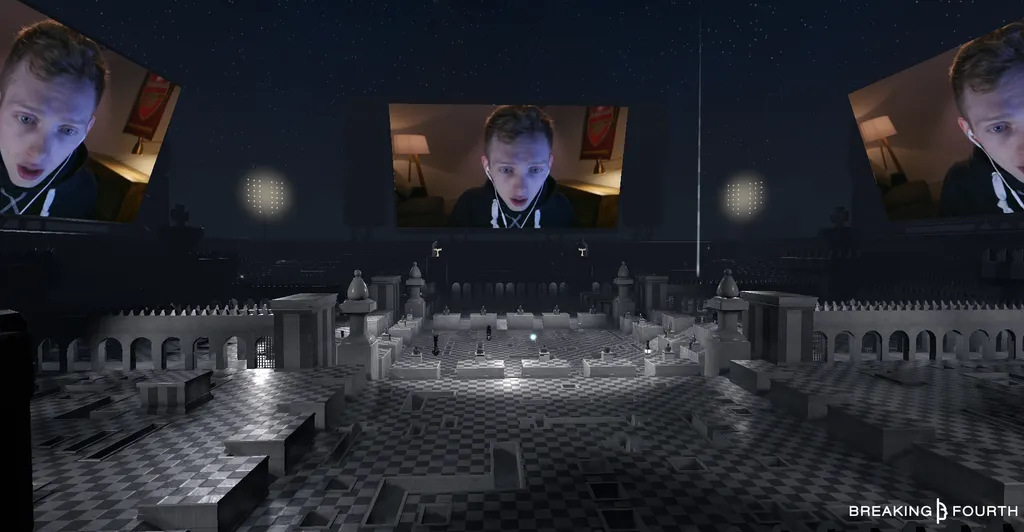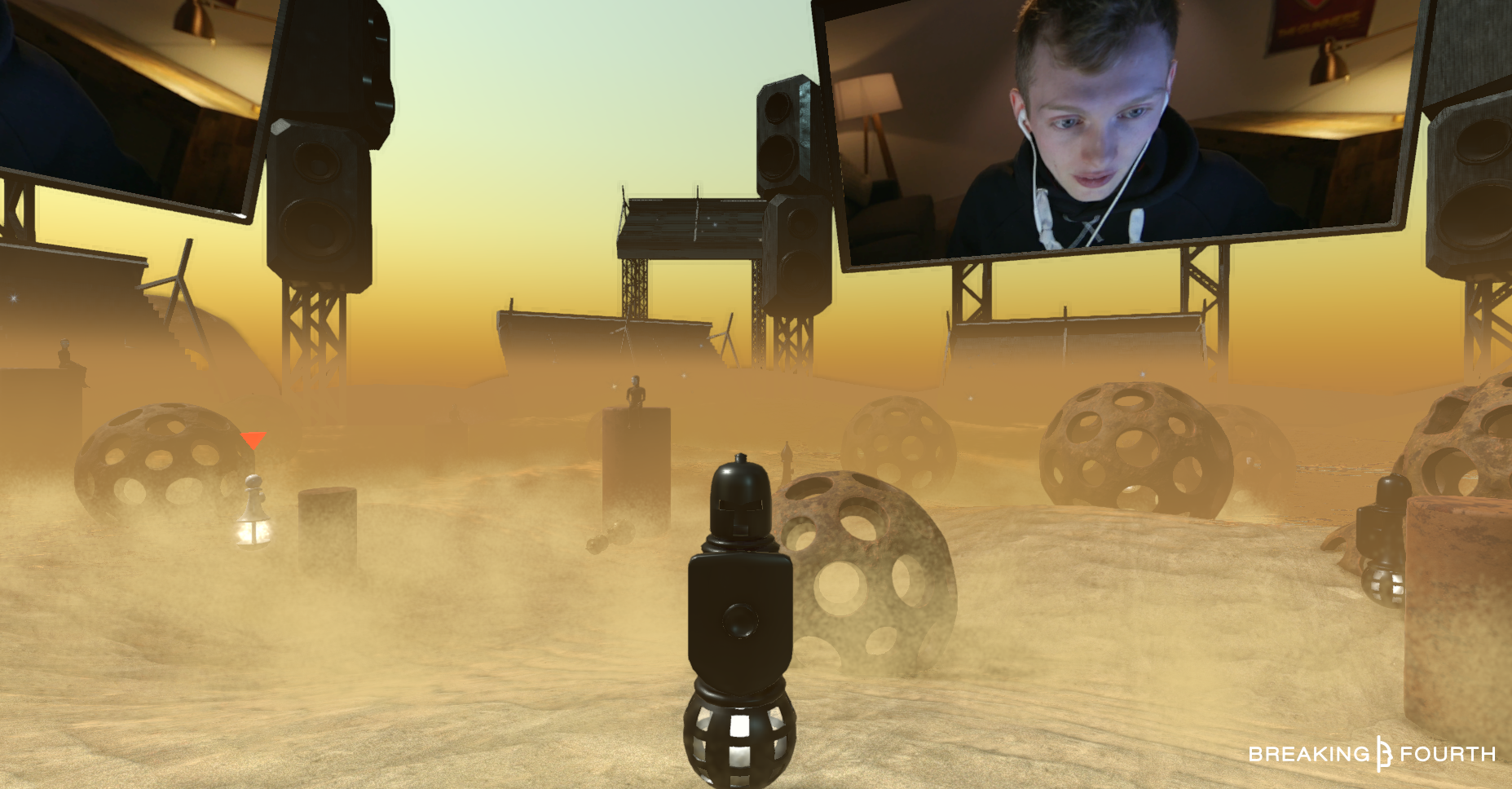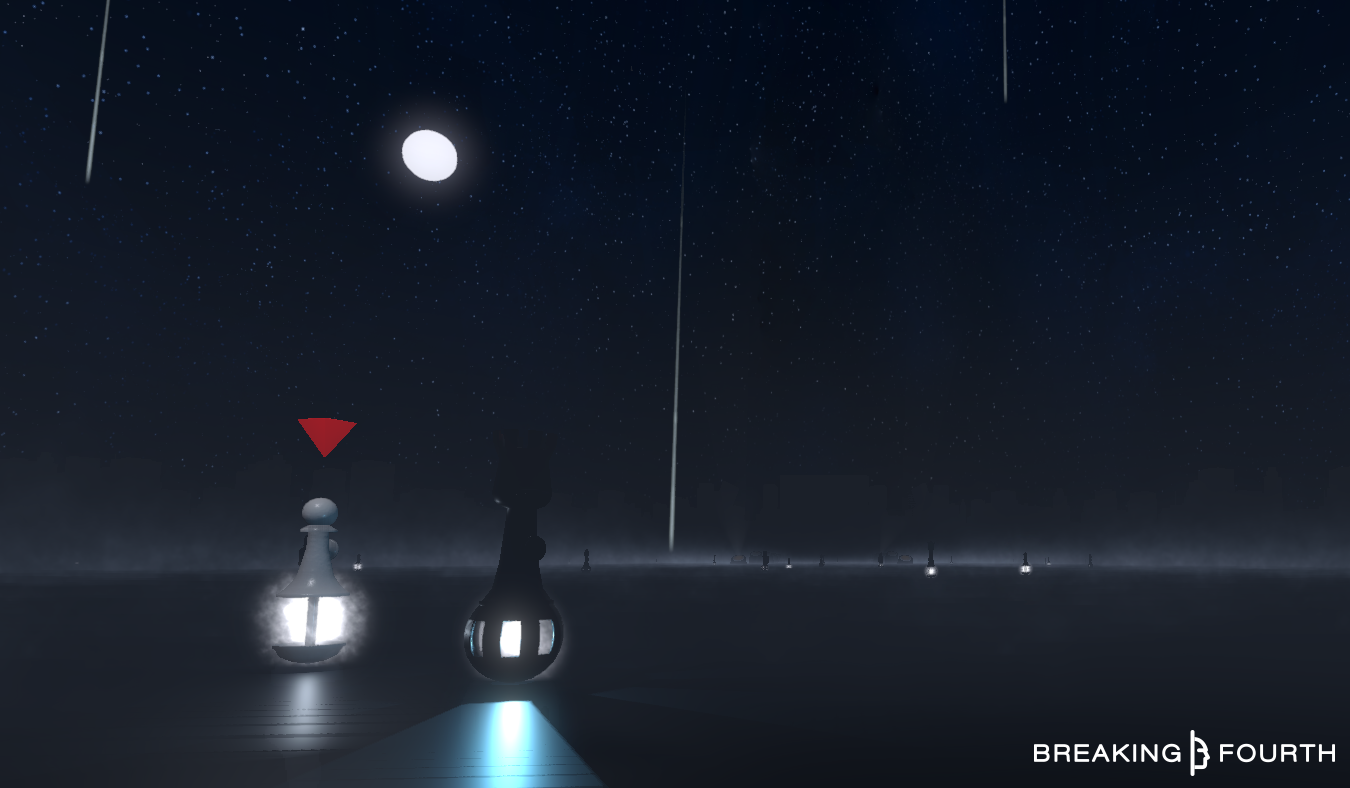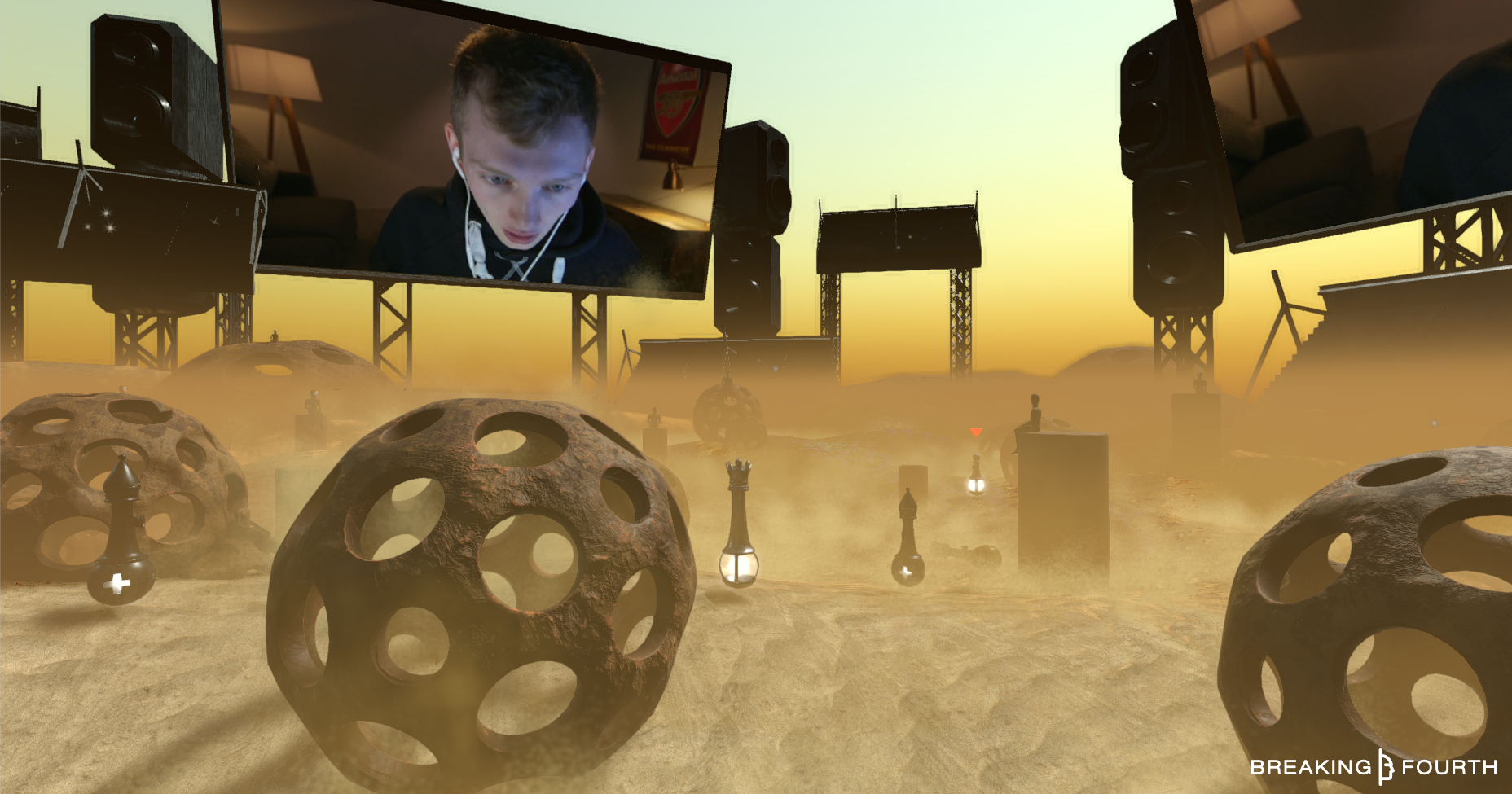When is VR storytelling going to grow up?
That’s what I’ve found myself asking time and again over the past few months. With the launch of the Oculus Rift and HTC Vive we’ve been treated to whimsical experiments like Henry and Invasion! that both understandably take a page from the book of Pixar. But where are the stories for those that enjoy darker, deeper content? We’ve seen some hard-hitting documentary shorts like Clouds Over Sidra but, from a narrative perspective, story makers have kept it clean thus far.
That is until you see Ctrl from Breaking Fourth.
I find the four-person team behind this incredible VR short tucked away in the back of a modern lot of studios, many of which belong to music companies. They’re a 20 minute walk from King’s Cross in London, and an early summer blue sky paints a bright, welcoming image of their glass walled office in which four friendly faces can be found. The mood is set for the cheerful VR experience that I assumed I was about to get.
20 minutes later I take off the Gear VR and it’s a very different scene. There’s a noticeably cautious air to the room as the team scans my expression for signs of distress. I’ll admit I was indeed a little shocked; I hadn’t expected to experience something as mature and profoundly challenging in VR as Ctrl for some time yet. I’ve got the answer to my question much faster than I anticipated, and I fully encourage you to seek this out too in the weeks to come.
Ctrl is unlike anything else I’ve seen in VR, both in terms of subject matter and delivery. Obviously, I don’t want to spoil anything, which kind of limits what I can say about it for now, but you can get a feel for it with the above trailer. It’s cleverly set inside a videogame, and we get to watch a young boy named Liam take part in the finals of a tournament that could win him some money that he could sorely use. Over the course of around 20 minutes Liam’s desperate situation is made ever clearer as he struggles to balance play and pain.
It’s a story about power, escalation, silent suffering and, as the name suggests, control. It explores these themes with uncompromising conviction, making full use of VR to lose you in an experience you won’t soon forget. Its setting is a gateway into looking at issues that will be close to home for many and although VR empowers the storytelling, it remarkably makes you feel utterly helpless.
Scenes are set within the arenas Liam plays in, with hovering screens showing both him and two livestream commentators that he talks to throughout. The game he plays looks like a mix of Call of Duty and Chess, with the latter’s unmistakable pieces shooting back and forth, trying to knock each other over with bursts of what looks like lightning. But games aren’t the only influence from which this astounding story draws.
“A big part of it came out of theatre,” Founder & CEO David Kaskel says. “I actually go to theatre all the time so I like to see a lot of experimental things. I’m particularly interested in immersive theatre and new and cutting edge theatre.”
The team likes to think that VR plays on some of the strengths of theatre itself. Kaskel describes it as a “very theatrical medium” thanks to the sense of presence it instils, in which you can make use of space and move audiences around. It’s key to overwhelming the viewer, which Ctrl’s creators say often happens. They’ve had people that were unable to talk after witnessing its powerful ending, and others that finally managed to understand the draw of videogames through getting inside of one.
Better yet, it’s capable of summoning emotions we’ve not yet seen in VR. Marketing Manager Alyssia Frankland touches upon the guilt that viewers can build up by being so powerless in a situation that feels very real. Though Breaking Fourth would sooner compare it to plays than movies, I’m reminded of some of my favourite British filmmakers like Shane Meadows and Paddy Considine, as if their unflinching depictions of certain situations had been reimagined for a new age.
One of the things that impressed me most about Ctrl is its lack of a ‘wow’ factor. This isn’t a piece that uses VR spectacle to pull you in. It goes beyond the simple 360 degree format, quickly brushing aside the novelty of being able to look around and stubbornly refusing to use attention-grabbing gimmicks to highlight the freedom you have over perspective. Though this will no doubt be a VR-first for many, the film doesn’t waste the time of experienced viewers. It wants to get right to the heart of VR storytelling.
That said, VR is crucial to just how well the story pulls you in.
“It’s more about that with the use of the sound and the use of the 360 space that people get so absorbed and so immersed into it that accentuate all the emotional feelings behind it. And it’s very much not just the actual themes itself; it’s a combination,” Frankland tells me.
If you don’t want to take my word for it, how about Valve’s Chet Faliszek? The VR figurehead recently labelled Ctrl as his “favourite Gear VR piece ever” and I don’t struggle to see how he arrived at that conclusion.
Breaking Fourth is also taking its theatrical influences to another level. Not only will Ctrl be released on Gear VR later down the line but the studio is also committing to live screenings of sorts in which a group of people will watch the piece at the same time within London’s Club Theatre at Rada Studios. The theatre will run every evening between from July 12-16 and 18-23, so make sure to look out for tickets in the near future. To stay up-to-date you can sign up to the official website.
What’s most exciting about all of this is that it’s just a start. Breaking Fourth is working on 15 pieces right now, and if Ctrl is anything to go by they’ll all be worth checking out.
“We think just the emotional impact of VR and what it allows you to do it going to make for incredible storytelling,” Kaskel says. “And I think the feelings you get after 15 minutes of that, if you wanted to do that in a film or something else would probably take an hour and a half.”
“They’re going to challenge you,” Frankland says of the other pieces. “Everything we’re going to do is going to be a thought provoking piece, but just across different areas.”
Those promises really resonate with me, especially following last month’s comments from Stephen Spielberg stating that the freedom VR provides could be “dangerous” for storytelling. Let me tell you; my attention was in the right place at all times during Ctrl. This is proof that if you craft your stories well then you won’t lose your audience for a second.
VR storytelling is finally growing up.

































